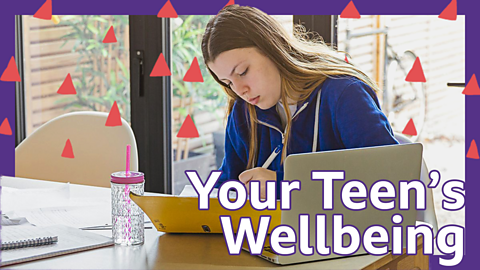By Dr Sandi Mann, Senior Psychology Lecturer at the University of Central Lancashire.
As children head back to class, we need to make sure they're rested and school-ready by getting them into good sleeping habits.
Ideally, it would be good to address this before schedules are disrupted again by half-term, or the holidays, but this can be a challenge, so here are my top tips to ensure they are bright-eyed and yawn-free for the whole school day!

1. Routine
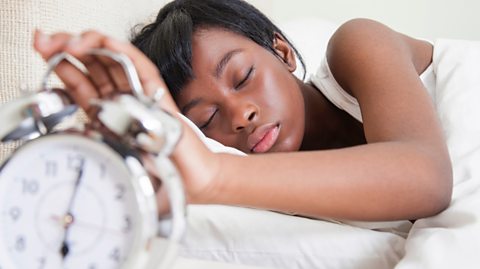
Even the most regimented parents can find that routine and structure become rather lax after a holiday without the need for such demands. Suddenly imposing routines on free-range children can seem daunting, but it's key to getting a good night’s shuteye.
Try to put into place a clear bedtime schedule that can become predictable, so that each stage induces a deeper state of relaxation. It should involve low stimulation and children should quickly learn what to expect next – a bath, putting on pyjamas, brushing teeth, dimmed lights, bedtime story for little ones, reading for older ones, lights out. This structure and predictability makes them feel safe and secure (which in today’s uncertain world is all the more important), whilst also conditioning their bodies to start relaxing at specific cues.
Routine also facilitates the transition from awake and lively, to sleepy and quiet – without a predictable routine, it's hard for that transition to be achieved. So, the same bedtime routine, at the same time, allows our day and night rhythms to adapt to the schedule most suited to a regular school day.
2. Sleep hygiene
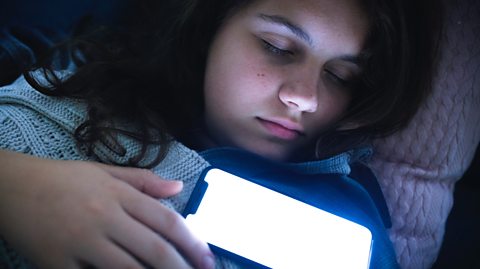
Sleep hygiene is about ensuring that both the environment and our habits are best placed to promote a good sleep. Difficulty getting to sleep, poor sleep quality and daytime tiredness are all indicators that sleep hygiene could benefit from a tweak or two.
Easy ways to improve sleep hygiene include ensuring that your child’s bedroom is a quiet, calm and darkened place to rest. Too much mess can make their minds too busy at bedtime, so clear away the clutter and try to put any exciting activities, like that game with the next level beckoning, out of sight. Make sure the temperature is comfortable and ensure that the rest of the house is peaceful too – so they don’t want to avoid sleep out of fear of missing out on the fun downstairs.
Devices should be switched off an hour before bedtime to avoid both too much stimulation and too much blue light which can interfere with the production of sleep-inducing chemicals in our brains. Similarly, for younger kids, don’t make that bedtime story too exciting with voices and actions!
Caffeine should be avoided from early afternoon or even earlier depending on bedtime – this includes colas, energy drinks and chocolate. Another surprising thing to avoid just before bedtime is exercise; whilst plenty of daytime activity, especially outdoors, is great for children, if it's too close to bedtime that can be too stimulating. Outdoor exercise also allows children to be exposed to daylight, something that may be in short supply as the nights draw in, but which is great for adjusting our sleep-wake cycle to day or night mode.
3. Gradual adjustment
Don’t suddenly expect bedtime to swing from midnight to 7:00pm! When our sleep schedules have shifted, it's like being jet-lagged so we need to adjust slowly, an hour or even 30 minutes at a time. This is all about our circadian rhythms – these are our natural internal body clock involving complex chemicals that help to regulate our sleep-wake cycle.
When children, or indeed adults, have become accustomed to going to sleep a few hours later than they need to for a school-night, their body clocks are on a different ‘time-zone’. Suddenly switching them to the new time-zone will only lead to frustration, anxiety and ongoing sleep battles, since the body clock simply can't adjust so quickly.

The cues that our body clocks use are mainly from daylight, so we can ‘fool’ our system to adjust by manipulating the light. Start closing the blinds to block out daylight and using dim lights or night lights earlier and earlier each night.
Never let your children succumb to an afterschool nap, no matter how tired they are (unless they are young enough to be still adjusting to missing their daytime sleep). This will simply maintain their current sleep-wake cycle at night instead of helping them slowly adjust.
4. Consistency
Once you have a good bedtime schedule, try not to let it slip at weekends. We need consistency now to keep their circadian rhythms on track. As half-term or holidays looms, it is tempting to relax the schedule a little but that would be the worst thing to do at this stage.
A little loosening of the rules may be fine under normal circumstances when our children have had relatively short gaps between long stretches of school-nights. But here, we will only just have managed to get their sleep on track – or perhaps not even had time to – so this is not the time to let things slide.
This means weekends and half-terms of early starts and early to bed. A found that irregular bedtimes correlated with bad behaviour in children, even if those children were getting plenty of sleep. , this time of teenagers, showed that consistency in sleep patterns had a positive effect on mood, irrespective of the amount of sleep they managed.
5. Address worries and concerns

Children and teens may have difficulty sleeping because they're worried or upset. Take time to discuss the day and anything that might have disturbed or distressed them. Perhaps consider adding some relaxation techniques and worry-management ideas to the bedtime routine. For example, using techniques to help slow breathing down, whilst a journal to review the good and bad of the day can be helpful. There are various apps that can offer good relaxation content for young people, although be aware that some of them feature in-app purchases.
Take some time to look after their sleep and your own. It can change the mood of the household for the better and help your family through the winter and into spring.

More from 91»»±¨ Bitesize Parents' Toolkit‚Ķ
Parents' Toolkit
Fun activities, real-life stories, wellbeing support and loads of helpful advice - we're here for you and your child.

How to tackle anxiety with Dr Anna
Calming techniques to help parents and children manage their anxiety.
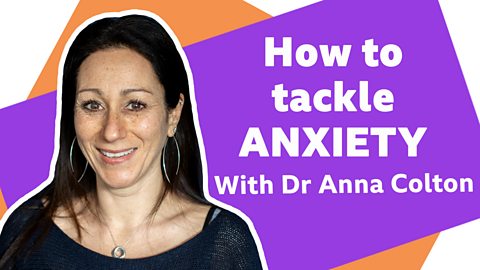
How to help your child embrace boredom
You don't need to be worried if your kids are bored in lockdown - Dr Sandi Mann offers some reasons why.
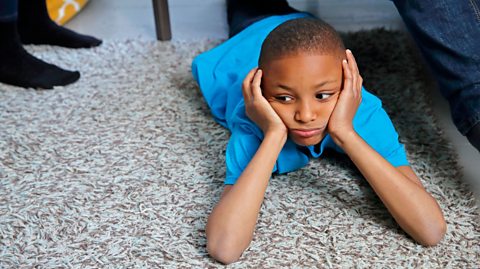
How to transform a smaller space for study or work
Many of us are having to make do with the little spaces in our homes for work or study. Here's how to make them feel bigger!

